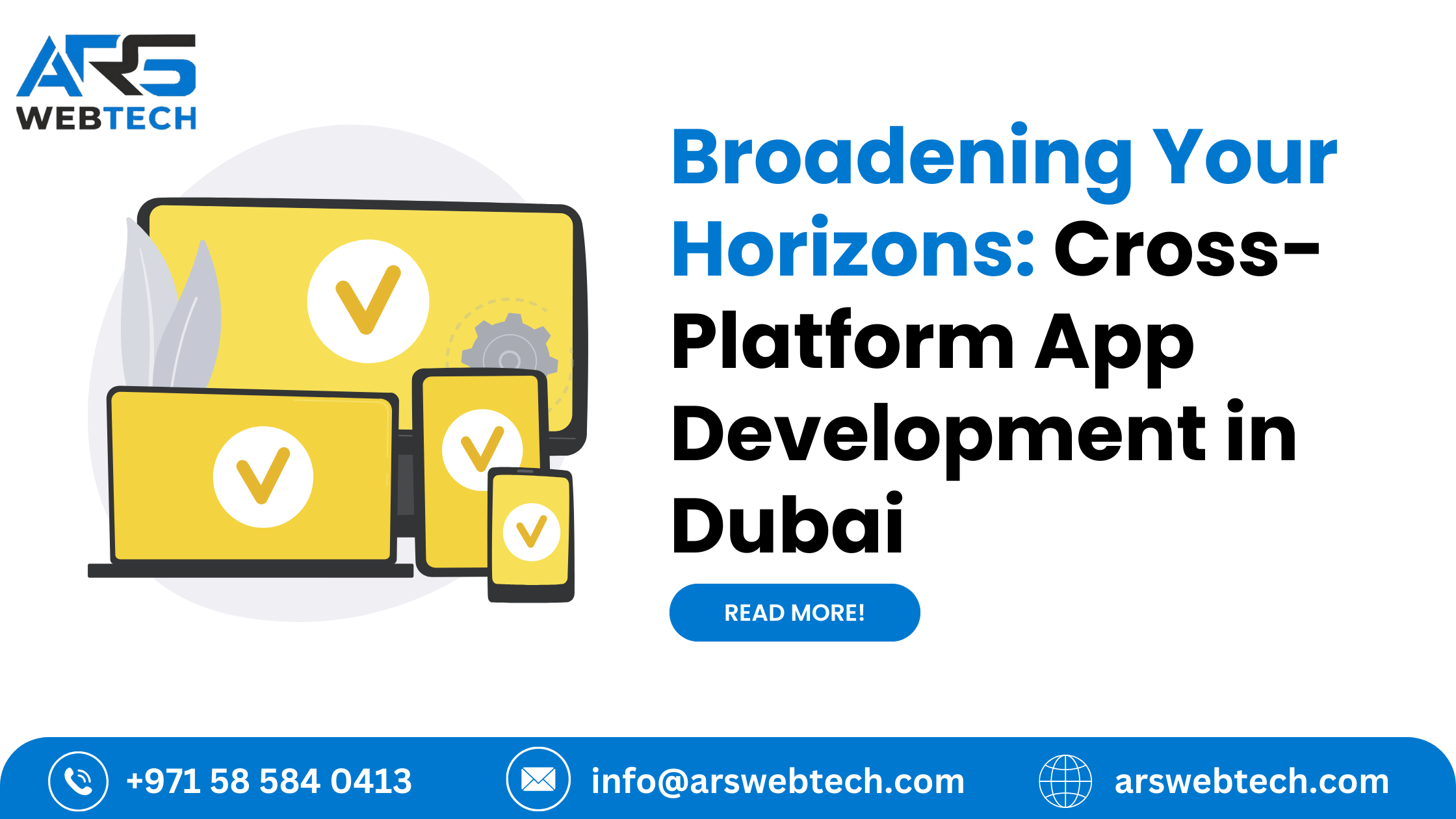Dubai, a bustling cosmopolitan hub known for its futuristic architecture, luxurious lifestyle, and thriving business ecosystem, has positioned itself as a global center for innovation and technology. In this dynamic city, where diverse cultures and industries converge, the demand for mobile applications continues to soar. Cross-platform app development has emerged as a game-changer, allowing businesses in Dubai to broaden their horizons, reach a wider audience, and thrive in the digital era.
The Mobile App Landscape in Dubai
Dubai's rapid growth and development have been accompanied by an ever-increasing reliance on mobile technology. Today, mobile apps play a pivotal role in enhancing the way businesses operate and interact with customers. From e-commerce and hospitality to finance and healthcare, virtually every sector in Dubai has recognized the importance of having a strong digital presence through mobile apps.
The Rise of Cross-Platform App Development
As businesses in Dubai seek to expand their reach and provide seamless user experiences, cross-platform app development has gained prominence. This approach allows developers to create mobile apps that can run on multiple platforms, such as iOS and Android, using a single codebase. It offers several key advantages:
1. Cost-Effectiveness:
- Cross-platform development reduces development costs by eliminating the need to create separate apps for each platform. This is particularly appealing to businesses aiming to optimize their budgets.
2. Faster Time-to-Market:
- Cross-platform tools enable quicker app development and deployment, allowing businesses to get their apps to market faster and gain a competitive edge.
3. Consistent User Experience:
- Cross-platform apps provide a consistent user experience across different devices and platforms, ensuring that all users have access to the same features and functionality.
4. Easier Maintenance:
- Maintaining a single codebase simplifies the update and maintenance process. Any changes or enhancements can be applied universally, saving time and effort.
5. Wider Audience Reach:
- By targeting both iOS and Android users, businesses can tap into a larger audience base, reaching potential customers on their preferred devices.
6. Enhanced Branding:
- Cross-platform apps can be designed with consistent branding elements, reinforcing the company's identity and message.
Use Cases for Cross-Platform Apps in Dubai
Cross-platform app development is versatile and can be applied across various industries and use cases in Dubai:
1. E-Commerce:
- Retailers can create cross-platform shopping apps that provide a seamless buying experience for customers on both iOS and Android devices.
2. Tourism and Hospitality:
- Hotels and tourism companies can develop apps for booking accommodations, exploring local attractions, and accessing concierge services.
3. Healthcare:
- Healthcare providers can offer telemedicine apps that connect patients with healthcare professionals, regardless of their device preferences.
4. Finance and Banking:
- Banks and financial institutions can provide customers with mobile banking apps that work seamlessly on iOS and Android platforms.
5. Education:
- Educational institutions can develop cross-platform e-learning apps to facilitate remote learning and provide access to educational resources.
6. Real Estate:
- Real estate agencies can create property search apps that cater to a broader audience of potential buyers and renters.
Challenges and Considerations
While cross-platform app development offers numerous benefits, it's important to be aware of potential challenges and considerations:
1. Performance Optimization:
- Ensuring optimal performance on both iOS and Android devices may require additional development efforts.
2. Limited Native Features:
- Some native device features may not be fully accessible in cross-platform development, which can impact certain app functionalities.
3. Tool Selection:
- Choosing the right cross-platform development tools and frameworks is critical for project success.
4. User Experience:
- Designing an intuitive and user-friendly interface that works seamlessly on both platforms is essential for user satisfaction.
Conclusion
Cross-platform app development in Dubai is empowering businesses to expand their digital footprint, connect with a broader audience, and stay ahead in an increasingly competitive market. The advantages of cost-effectiveness, faster time-to-market, and consistent user experiences make cross-platform development an attractive option for businesses of all sizes and industries.
As Dubai continues to embrace innovation and technology, cross-platform apps are poised to play a pivotal role in shaping the city's digital landscape. Businesses that leverage this approach will not only meet the demands of today's tech-savvy consumers but also position themselves for success in the ever-evolving world of mobile technology.
FAQ’s
1. What is cross-platform app development, and how does it differ from native app development?
- Cross-platform app development involves creating mobile apps that can run on multiple platforms using a single codebase. Native app development involves building separate apps for each platform (e.g., iOS and Android) with platform-specific code.
2. Why is cross-platform app development gaining popularity in Dubai?
- Cross-platform development offers cost savings, quicker time-to-market, and the ability to reach a broader audience by targeting both iOS and Android users with a single app.
3. What are some of the popular cross-platform development frameworks and tools used in Dubai?
- Popular cross-platform development frameworks include React Native, Flutter, Xamarin, and PhoneGap. The choice of tool depends on the specific project requirements.
4. Can cross-platform apps provide the same level of performance as native apps?
- While cross-platform apps can provide excellent performance, some highly complex or performance-critical apps may benefit from native development. However, advancements in cross-platform development have significantly improved performance.
5. Are there limitations to cross-platform app development in terms of accessing native device features?
- Cross-platform apps may have limitations in accessing certain native device features. However, many cross-platform development tools offer plugins or modules to access native functionalities.
- Cross-platform app development is versatile and can benefit various industries, including e-commerce, tourism, healthcare, finance, education, and real estate.
Last Updated at: 20-09-2023






